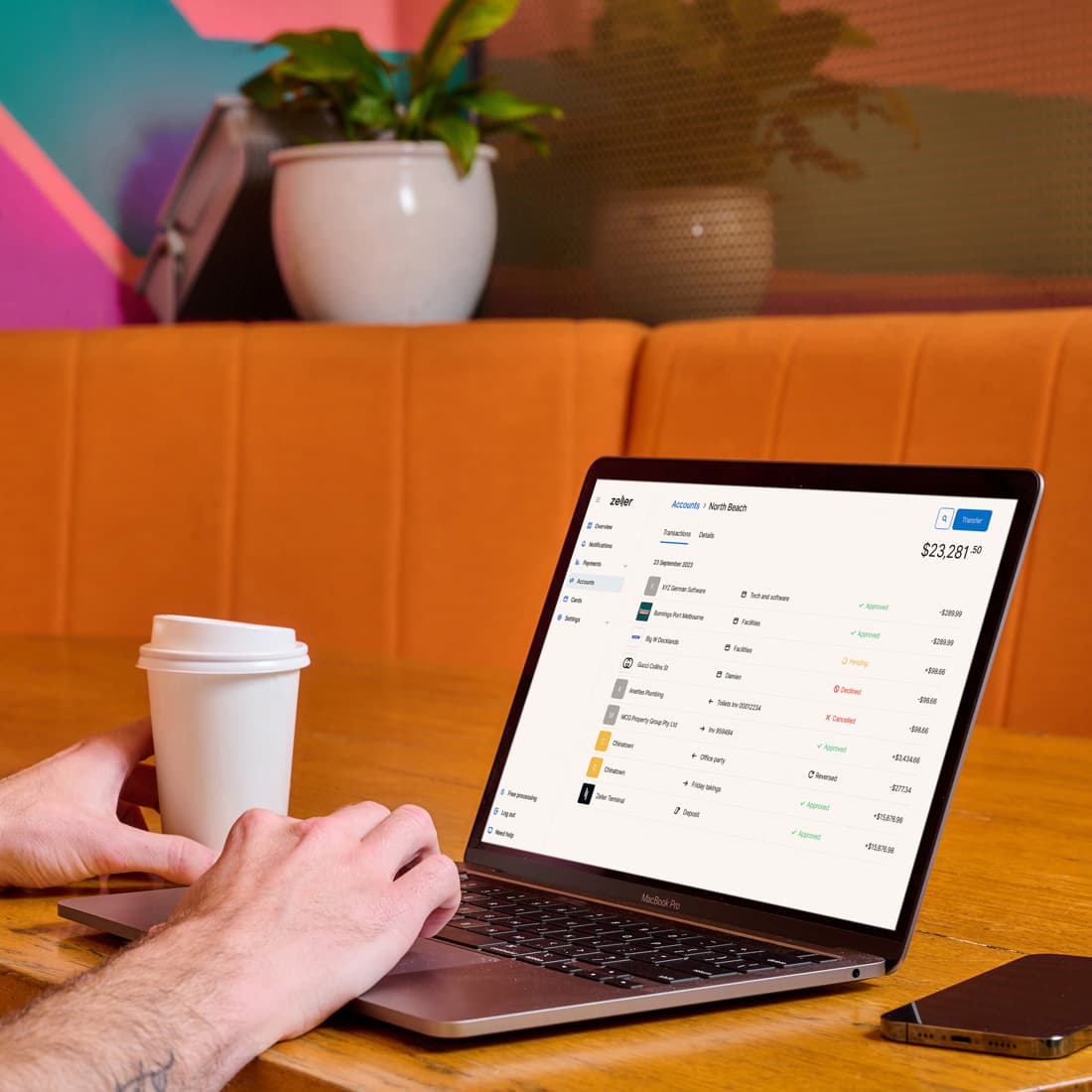
- Business Growth & Optimisation
A Simple Guide to Registering a Business Name in Australia
What’s in a name? Everything when it comes to business. In this guide, we explain what you need to consider when choosing a trading name and answer all your questions about registering a business name, from costs to renewals, transfers, and trademarks.
What is the difference between applying for an ABN and registering a business name?
When you apply for an Australian Business Number (ABN), you are declaring your intention to run a business. When you apply for an ABN without also registering a business name, then your business name will automatically be your first and last name (eg. John Smith). If you plan on trading under a name other than your own name (eg. ‘John’s Car Cleaning’), then you will need to register the business name. While ABNs are managed by the Australian Business Register and business names are managed by ASIC, you can still register for both at the same time using the Australian Government Business Registration Service. Similarly to ABNs, business names are registered nationally, so if your business expands, you will not need to register again with other states or territories.
Why do I need to register a business name?
First and foremost, if you plan on trading under any name that is not your own, you will be legally obliged to register a business name. Beyond its administrative purpose, having a recognisable business name is also a great way for your customers to identify you and distinguish you from your competitors. A good business name will also give your operation more legitimacy and professionalism when written on invoices or social media for example.
How to choose a business name.
Whether you’ve already got a name in mind or you’re in the process of brainstorming, there are a number of factors you need to consider when deciding on your business name.
Relevance and memorability: Your business name either needs to reflect the nature of your business and the products or services your offer (eg. ‘Wedding Cakes by Jessica’) or it needs to be simple and memorable (eg. ‘Google’). Ideally it will be both!
Uniqueness: Do some market research to ensure your name sets you apart from the competitors. You cannot register a business name that is identical or too similar to the registered name of another Australian business or company. You can check whether your business name is available using the business name check tool, and the TM Tracker to check whether the name has been trademarked.
Branding potential: Consider how the name fits with your overall branding strategy, including logos and slogans. If your name is too long, it will be harder to create simple, identifiable marketing materials.
Domain availability: If you plan on building a website, it’s important to know that the domain name (the URL or web address that people use to access your site) is available before deciding on it. Your web address needs to accurately reflect your business name as this will make it easier for your customers to identify you online. One quick way to check for the availability of a domain name is to do a simple web search. Type in the name you want to use, including domain extensions, such as .com, .com.au, or .net.
Search engine optimisation (SEO): A business name that includes relevant keywords related to your product or service can improve your visibility in search engine results. If your business just serves a local area, including the location in your business name can also boost your rankings in local search results.
Social media handle availability: In certain industries, an Instagram or TikTok account can be just as powerful as a website, therefore checking the availability of a social media handle (the “@” symbol followed by the username) is as important as a domain name. The simplest way to check this is to enter your proposed business name into the social media’s search bar.
Appropriateness: Culturally and socially speaking, it’s important to consider whether the name is appropriate, ensuring it doesn’t include any potentially offensive language. There are also certain words, characters, and expressions that are restricted. You can learn more about these on the Australian Securities and Investments Commission (ASIC) website.
How do you register a business name?
There are three ways to register a business name:
The Australian Government Business Registration Service – this service combines several business and tax registrations in one place. If you haven’t yet applied for an ABN, then you can do so and register your business name online at the same time.
ASIC Connect – If you already have an ABN, you can apply for a business name directly with ASIC Connect.
Private service provider - You can choose to register or renew your business name with a private service provider (PSP). This could be an accountant, solicitor, or another business that provides online services with ASIC. They will usually charge a fee for their services above what ASIC would charge.
Note that when you register for a business name, you’ll need to choose a business structure (a sole trader, company, partnership, or trust, for example). It is therefore important that you do your research before applying to ensure you know what kind of structure is most suitable for your business. If you’re not sure, click here to take the ‘help me decide’ quiz.
How much does it cost to register a business name?
The fees to register your business name with ASIC are:
$42 for 1 year
$98 for 3 years
How long does it take to have your business name registered?
Completing an online business name application should take approximately 12 minutes. If you have an ABN, have submitted the required documents, and made payment, you can expect confirmation within:
2 business days for credit card payments
Up to 5 business days for payments made via BPay, EFT, or bank transfer
Can you have multiple business names under one ABN?
You can register multiple businesses under the same ABN, provided they share the same business structure. If a business has a different structure, you will need to apply for a new ABN. For example, if you are a sole trader working as a carpenter, and you plan on starting a private building company with a business partner, together you will need to apply for a new ABN and register a name for the new business structure. On the other hand, if you are a sole trader, working under the name, ‘Wedding Cakes by Jessica’ and you decide to open a small café under the same ABN and business structure, you simply have to register the name of the new venture through the ASIC website.
Can I change my business name after registering?
No, once you have registered your business name, you cannot change it. If you decide you’d like to trade under a different name, you will need to register a new one.
When do I need to renew my business name?
You’ll receive a notice to renew your business name by email at least 30 days before your renewal date. Once you receive your renewal notice from ASIC, you can renew your business name through ASIC Connect or ASIC’s ‘Pay now’ service. If you don't renew your business name, on time, the name may be cancelled. If you have multiple business names, or also have a registered company, you can ask ASIC to align the renewal dates for those registrations.
How much does it cost to renew my business name?
It costs the same amount to renew a business name as it does to register:
$42 for one year
$98 for three years
How do you transfer a business name?
If you are selling your business and need to transfer the business name to the new owner, you can do so on the ASIC Connect website by following these steps.
Do I need to trademark my business name?
While ASIC works to ensure that no two businesses can register the identical name, it cannot prevent another business from registering a name that is similar. What’s more, when you register a business name with ASIC, it does not grant you exclusive rights to that name, meaning that someone else could still trademark the name.
If you would like to protect your business name, you can do so with a trademark. A trademark is an intellectual property (IP) right that sets your distinctive brand, product, or service apart from competitors in the market. It gives you exclusive rights to use your business name in connection with the goods or services for which it is registered, helping prevent others from using a similar name that could confuse customers. It also gives you legal recourse to take action against anyone who infringes on your trademark, including stopping them from using your business name and potentially seeking damages.
Starting a business? Zeller has your finances covered.
Starting a business often means having a lot on your to-do list, but thanks to Zeller you can cross off ‘open a business transaction account’ in as little as six minutes. Plus, with a suite of tools to help you accept payments, manage your expenses and track your cash flow, Zeller will ensure you start your business on solid financial footing.



